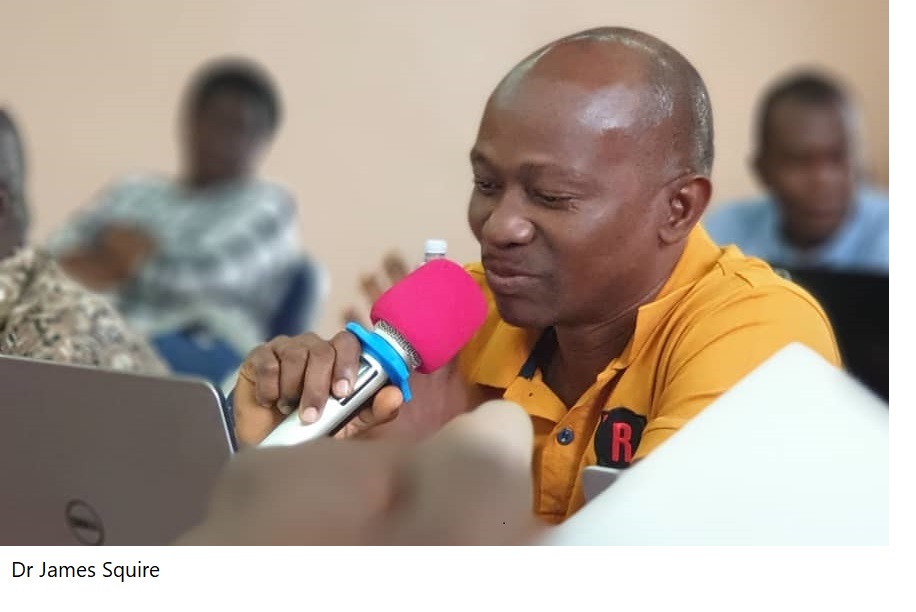Globally, 302 SORT IT alumni are involved in the COVID-19 response, of which 73% in 62 countries are applying skills gained from a training programme developed by TDR and partners.
The training I received from TDR and partners has been invaluable as it has enabled me to transfer the skills I learned while conducting research on Ebola to my current work on- Dr James Squire, Ministry of Health, Sierra Leone
COVID-19.
The Structured Operational Research and Training IniTiative (SORT IT) is a global partnership-based initiative coordinated by TDR and implemented by various partners including Ministries of Health, non-governmental organizations and academic institutions. It supports countries to build sustainable capacity
to conduct and publish operational research and use the evidence to inform decision-making to improve public health. So far, SORT IT has been scaled up across 93 countries and covers various domains of public health.
Given the current COVID-19 pandemic, we conducted a quick survey to 1) capture whether SORT IT alumni are contributing to the pandemic response, and if so, 2) map where and how they are applying their SORT IT skills.
 The analysis revealed that 302 (62%) of 488 SORT IT alumni
who responded to the survey in 72 hours are currently involved with the COVID-19 response, and 219 of them (73%) are using the skills gained to tackle the pandemic. This finding shows that the SORT IT programme has equipped front-line health workers
in 62 countries with the vital skills needed to respond to the unprecedented global public health emergency of COVID-19.
The analysis revealed that 302 (62%) of 488 SORT IT alumni
who responded to the survey in 72 hours are currently involved with the COVID-19 response, and 219 of them (73%) are using the skills gained to tackle the pandemic. This finding shows that the SORT IT programme has equipped front-line health workers
in 62 countries with the vital skills needed to respond to the unprecedented global public health emergency of COVID-19.
Dr James Squire of the Ministry of Health of Sierra Leone, who conducted and published research on the impact of Ebola on health systems through a SORT IT training programme in 2016, is now leading the Ministry of Health’s efforts to enhance surveillance systems that generate real-time, high-quality and disaggregated data for tackling COVID-19.
 Dr Hayk Davtyan, who leads the Tuberculosis Research and Prevention Center (TB-RPC), a non-governmental organization in Armenia, was trained on health systems strengthening for TB control in 2018 through a SORT IT training programme. He is now setting up a digital surveillance and geographic information system to facilitate case finding and trigger public health responses using mobile phone applications.
Dr Hayk Davtyan, who leads the Tuberculosis Research and Prevention Center (TB-RPC), a non-governmental organization in Armenia, was trained on health systems strengthening for TB control in 2018 through a SORT IT training programme. He is now setting up a digital surveillance and geographic information system to facilitate case finding and trigger public health responses using mobile phone applications.
The SORT IT training has provided me with skills to think outside the box and find innovative solutions to respond to the global pandemic,” he said.
The table below highlight various areas of outbreak response where SORT IT skills are being applied. Several participants are using skills in multiple areas.
| Areas where SORT IT skills are being applied (in descending order) | Number of alumni |
| Situation analysis of COVID-19 | 113 |
| Infection, prevention and control and health care worker safety | 105 |
| Data generation and/or analysis | 92 |
| Reporting/ Decision making | 89 |
| Critical preparedness, readiness and response actions | 88 |
| Setting up surveillance systems | 88 |
| Operational or clinical research | 56 |
| Screening and/or diagnosis of COVID-19 cases | 51 |
| Mitigating the COVID-19 effect on other diseases, e.g., TB, HIV/AIDS | 50 |
| Clinical care | 22 |
| Others | 15 |
“These survey results demonstrate the value of investing in people and in research training ahead of emergencies,” said TDR Director John Reeder. “We now have the right people in the right place at the right time.”
For more information, contact Dr Rony Zachariah.

